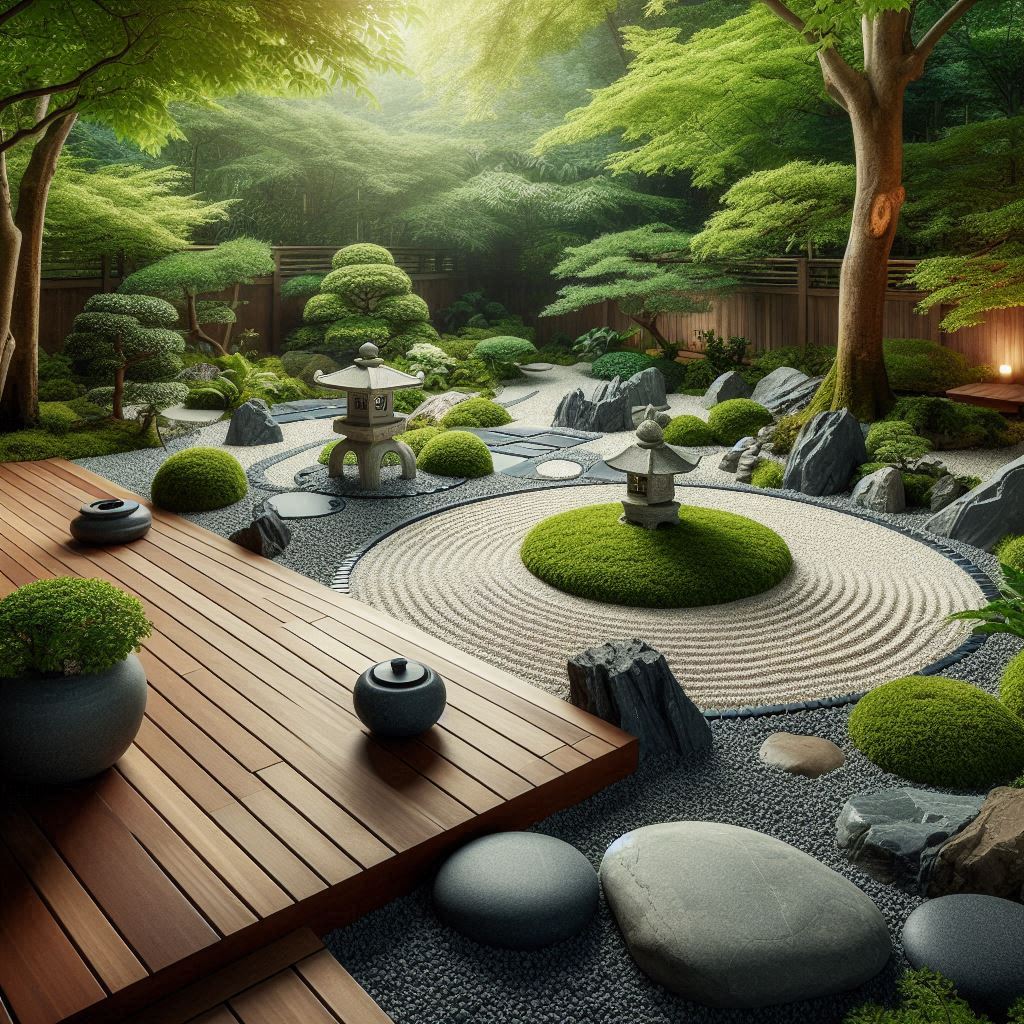Understanding the Basics of a Zen Garden
A Zen garden, sometimes referred to as a Japanese rock garden, is intended to inspire peace and encourage introspection. Its basic but profound design usually consists of rocks, gravel, sand, and sparse vegetation. The primary components are representations of natural forms: the raked sand or gravel resembles the movement of water, while the rocks stand in for mountains or islands. A Zen garden is meant to be a calm environment that promotes reflection and mindfulness. Knowing these symbolic components will help you create a tranquil outdoor retreat that encourages introspection and calm.
Choosing the Right Elements for Your Zen Garden
Choosing the appropriate materials for a Zen garden’s design is essential to creating its peaceful ambience. Often, the base is made of gravel or sand that has been raked into patterns that mimic waves or water. The arrangement of rocks in different sizes to represent mountains gives the area structure. Without overpowering the simplicity, you can also add elements like bamboo, moss, or carefully pruned shrubs for greenery. Adding a small water feature, like a stone basin, to create the soothing sound of trickling water is a traditional feature. Every object in a Zen garden should have a function and add to the tranquility overall.
Creating a Balanced and Harmonious Layout
Harmony and balance are the lifeblood of a Zen garden. The placement of the plants, rocks, and other elements should look purposeful but natural. First, make a basic sketch of the design while adhering to the asymmetry that characterizes Japanese gardens. This method captures the flexibility and flaws of nature. No object should dominate the space when placing elements; instead, think about how they interact with one another. The garden should be uncomplicated but meaningfully layered, promoting peaceful reflection. Your Zen garden can become a place that feels harmonious, serene, and inviting with thoughtful arrangement.
Maintaining Your Zen Garden for Long-Lasting Peace
For years to come, a well-kept Zen garden can offer a tranquil outdoor haven. Raking the sand or gravel often to preserve its soothing pattern is one of the main upkeep duties. The act of performing it can be meditative. Furthermore, eliminate any weeds or debris to maintain a tidy and uncluttered garden. If you decide to use plants, be sure to prune them carefully so that they retain their natural shapes and don’t overpower the space’s simplicity. Your Zen garden can remain a peaceful and contemplative space with little work and a thoughtful approach.
